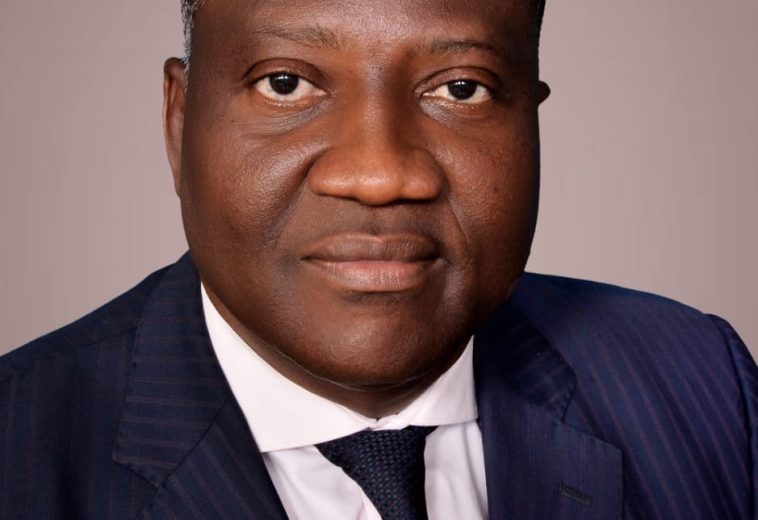To maintain the long-term sustainability and high calibre of the tourism offering, sustainable tourism attempts to strike a balance between the traveller’s effects on the environment, society, and economy. In addition to being a moral obligation, sustainable tourism offers African nations a tactical advantage to boost their resilience, competitiveness, and appeal in the international travel industry. Africa is the tourism region with the fastest rate of growth in the world, according to the World Tourism Organisation (UNWTO). In 2023, there will be 71 million international arrivals, a 9% increase from the previous year. Africa still only has 5% of the world market, so there is a great deal of room for growth and development in this region.
African leaders must take the lead in environmentally friendly programmes that support sustainable tourism in their nations and regions if they are to fulfil this potential. The three pillars of sustainable tourism—conservation, community, and culture—should serve as the foundation for these initiatives.
Conservation: Preserving the Environment and Wildlife
Many tourists come to Africa primarily for its natural landscapes and wildlife, which are among the most spectacular and diverse in the world. However, a number of issues, including poaching, habitat loss, climate change, and conflicts between people and wildlife, are also posing a threat to these resources. Because of this, it is imperative to preserve and safeguard the environment and wildlife for both their inherent worth and their positive effects on the economy and society.
Several African leaders are setting the standard for conservation efforts, including:
Rwandan President Paul Kagame
In Rwanda and the surrounding area, Kagame has been an advocate for sustainable development and environmental preservation. His support has been shown for the preservation and rehabilitation of the nation’s natural resources, particularly the critically endangered mountain gorillas and the Volcanoes National Park, which is home to them. In addition, he has worked to advance ecotourism as a means of generating income and creating jobs for the nearby communities while maintaining the security and welfare of both tourists and wildlife. Along with hosting and taking part in a number of regional and global forums and events on environmental issues, he has also organised and hosted the UN Climate Action Summit, the Global Green Growth Forum, and the African Leadership Forum.
Botswana’s President, Mokgweetsi Masisi:
In Botswana and throughout Africa, Masisi has been an advocate for sustainable tourism as well as the protection of wildlife. He has overturned the previous administration’s hunting ban, citing the need to strike a balance between the rights and needs of the local population and the wildlife. Additionally, he has expanded the anti-poaching units’ funding and capabilities and strengthened their partnerships with international organisations and neighbouring nations. Additionally, he has developed and enhanced the nation’s tourism industry, particularly the ecotourism sector, which capitalises on the abundant and varied wildlife and natural resources found in the nation, including the Okavango Delta, the Chobe National Park, and the Kalahari Desert.
Kenya’s president, Uhuru Kenyatta
Kenyatta has been a steadfast supporter of anti-poaching and wildlife preservation initiatives throughout Kenya and Africa. He has started and supported a number of projects and campaigns aimed at saving and boosting the numbers of the nation’s emblematic species, including lions, giraffes, elephants, and rhinos. In addition, he has contributed to the upkeep of the nation’s national parks and reserves, as well as the facilities and infrastructure required for ecotourism. Along with working with foreign allies and other African leaders, he has also opposed the illicit wildlife trade and supported the sustainable use of natural resources.
Community: Empowering the Local People and Sharing the Benefits
Due to its ability to provide locals with opportunities, jobs, and income, tourism has the potential to be a very effective tool for reducing poverty and promoting social inclusion in Africa. However, if the local population is not included or consulted in the planning and management of tourism, it can also lead to the creation of or exacerbate social problems like exploitation, marginalisation, and displacement. As a result, it’s critical to uplift the community and give them a say in tourism while still honouring their rights and dignity.
Several African leaders are setting the standard for community initiatives, including:
Ghana’s President Nana Akufo-Addo
In Ghana and throughout Africa, Akufo-Addo has been an advocate for inclusive and equitable development. He has put into practice and backed a number of policies and initiatives aimed at raising people’s living conditions and general well-being, particularly for the weaker and impoverished. Through the provision of financial support, market access, and skill training, he has also encouraged and facilitated the local communities’ participation and empowerment in the tourism sector. Additionally, he has pushed for the enhancement and preservation of the nation’s rich and varied cultural heritage, which includes arts and crafts, traditional festivals, and historical forts and castles.
South African President Cyril Ramaphosa
In South Africa and the surrounding region, Ramaphosa has been a leading figure in social transformation and reconciliation. He has started and supported a number of projects and campaigns aimed at addressing racism, inequality, and violence—some of the problems left over from colonialism and apartheid. Through promoting the Nelson Mandela legacy, recognising the indigenous languages, and honouring national holidays, he has also celebrated and promoted the diversity and unity of the nation’s people, culture, and history. Through the promotion of township tourism, rural tourism, and cultural tourism, he has also enabled and encouraged the participation and contribution of the local communities in the tourism industry.
Ethiopia’s Prime Minister, Abiy Ahmed
Peace and democracy in Ethiopia and the Horn of Africa have been sparked by Abiy. In order to put an end to the political and ethnic tensions and conflicts in the nation and the region, he started and carried out a number of reforms and measures, including the opening of the political space, the release of political prisoners, and the peace agreement with Eritrea. Through the improvement of trade, integration, and infrastructure, he has also encouraged and facilitated the growth and cooperation of the nation and the region. Through the development and promotion of the nation’s natural and cultural attractions, like the Simien Mountains, the Lalibela churches, and the Omo Valley, he has also encouraged and supported the involvement and empowerment of the local communities in the tourism sector.
Culture: Honouring Variety and Traditions
Many Africans derive their sense of identity and pride from the rich and varied cultures, languages, religions, and traditions found throughout the continent. Globalisation, modernization, and homogenization, on the other hand, are also exerting pressure on these cultures, potentially weakening or diluting their authenticity and distinctiveness. As a result, it is essential to share and celebrate Africa’s rich cultural legacy with visitors while also honouring and protecting it.
Leading the way in cultural initiatives are a few African leaders, who are:
Senegalese President Macky Sall
Sall has fought for and promoted African identity and culture in Senegal and around the world. He has backed and sponsored a number of initiatives and gatherings, like the Gorée Island, the Dakar Biennale, and the Museum of Black Civilizations, that seek to protect and promote the nation’s cultural legacy. In addition, he has supported and taken part in a number of programmes and events, including the African Renaissance Monument, the African Cultural Season, and the African Union, that seek to honour and promote African identity and culture.
In addition, he has promoted and assisted the growth and diversification of the nation’s creative and cultural industries, including fashion, music, and film.
Tanzanian President John Magufuli
In Tanzania and across Africa, Magufuli has been a steadfast supporter of African sovereignty and pride. To defend and further the nation’s interests and ideals, he has put into practice and supported several laws and initiatives, including those that encourage industrialization, combat corruption, and declare independence. Additionally, he has promoted and assisted in the preservation and enhancement of the nation’s cultural heritage, which includes the Ngorongoro Crater, the Swahili language, and Zanzibar Stone Town. Additionally, he has celebrated and emphasised the unity and diversity of the nation’s population and culture through the propagation of the flag, national motto, and national anthem.
President of Somalia, Mohamed Abdullahi Mohamed
Mohamed has led Somalia and the region to resilience and recovery. In order to preserve and rebuild the nation’s peace, security, and stability, he has spearheaded and supported a number of projects and efforts, including the electoral reform, constitutional review, and reconciliation process. In addition, he has started and supported the nation’s economic, social, and infrastructure development—including debt relief, social services, and infrastructure like roads and airports. Additionally, he has encouraged and supported the preservation of the nation’s cultural heritage, which includes Somali music, literature, and cuisine.
African leaders can guarantee that tourism supports the social and economic advancement of their nations and regions while preserving and improving the environment and culture by leading eco-friendly projects that prioritise community, conservation, and culture. These programmes have the potential to make African travel destinations more appealing and competitive while also giving visitors an exceptional and unforgettable experience. In addition to being a challenge, sustainable tourism offers Africa a chance to present its potential and diversity to the global community.


